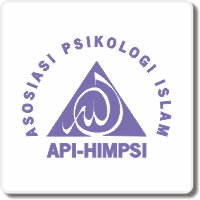SUMBER MAKNA HIDUP NELAYAN PANTAI MENGANTI: Studi Interpretative Phenomenological Approach (IPA)
DOI:
https://doi.org/10.32923/psc.v1i1.874Keywords:
the meaning of life, fishermen, interpretative phenomenological approach (IPA)Abstract
The aim of this study is to reveal what are the sources of meaning of life and what are the characteristics of meaning of life. The study was conducted on the subject of five fishermen in Menganti Beach, Kebumen, Central Java. This study imprints the phenomenology paradigm, especially the Interpretative Phenomenological Approach (IPA) which is useful to uncover the meaning of life of the fishermen. The findings in this study include: 1) sources of fishermen's life meaning that are structured in the form of creative values (such as self-actualization, and structuring of the meaning of life), attitudinal values (attitudes facing boundary situations, self-control, fortitude, courage), experiential values ( vertical self- transcendence, horizontal self-transcendence, related and well-being); 2) characteristics of the meaning of life of fishermen consisting of unique experiences, concrete results, meaning of life as a guide to direct life forward.
Downloads
Published
Issue
Section
License
Copyright Notice
The Psychosophia: Journal of Psychology, Religion, and Humanity is under the Creative Commons Attribution 4.0 International (CC-BY 4.0) License, according to which:
1) Authors retain copyright and grant the journal the right to first publication, with the work simultaneously licensed under the Creative Commons Attribution (CC-BY 4.0) that allows the sharing of articles published with the acknowledgment of authorship and the initial publication in this journal.
2) The authors are authorized to make additional contracts separately for distribution of the version of the work published in this journal (for example, publication in an institutional repository or as a chapter of the book), as long as there is recognition of authorship and initial publication in this journal.
3) Authors are authorized and encouraged to publish and distribute their work online (for example, in institutional repositories or on their personal pages) at any time before or during the editorial process, as it increases the impact and reference of the published work.






